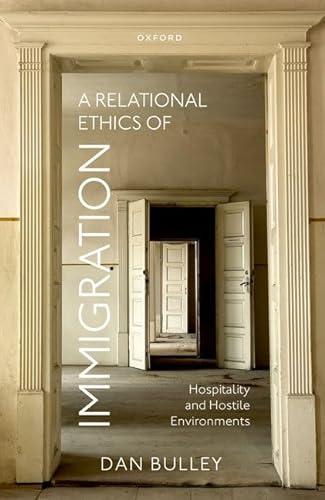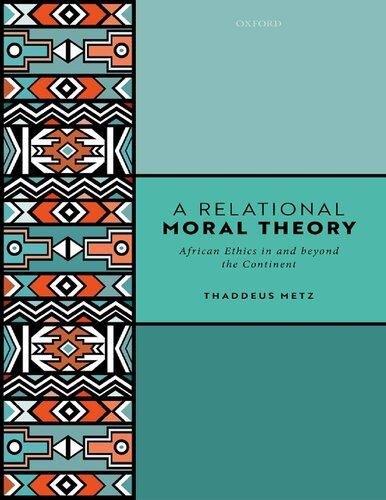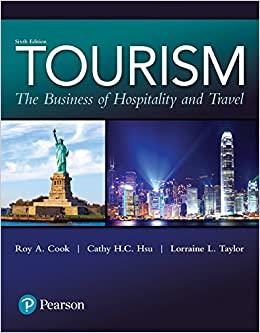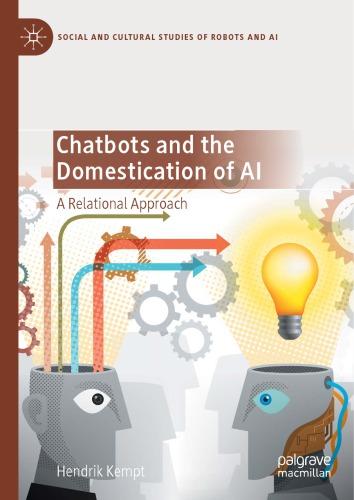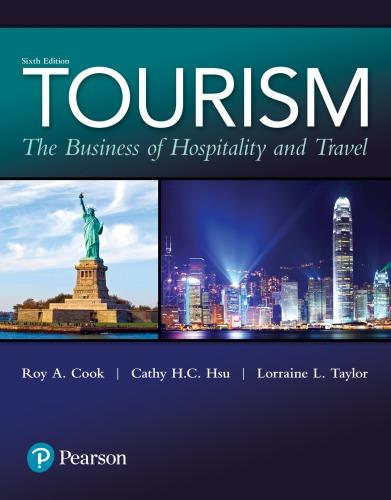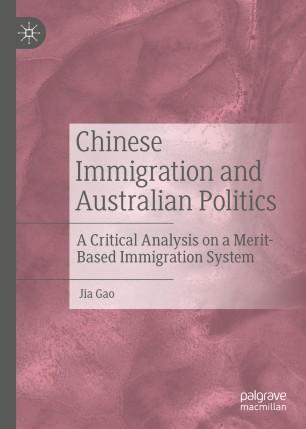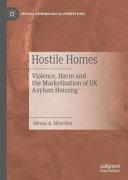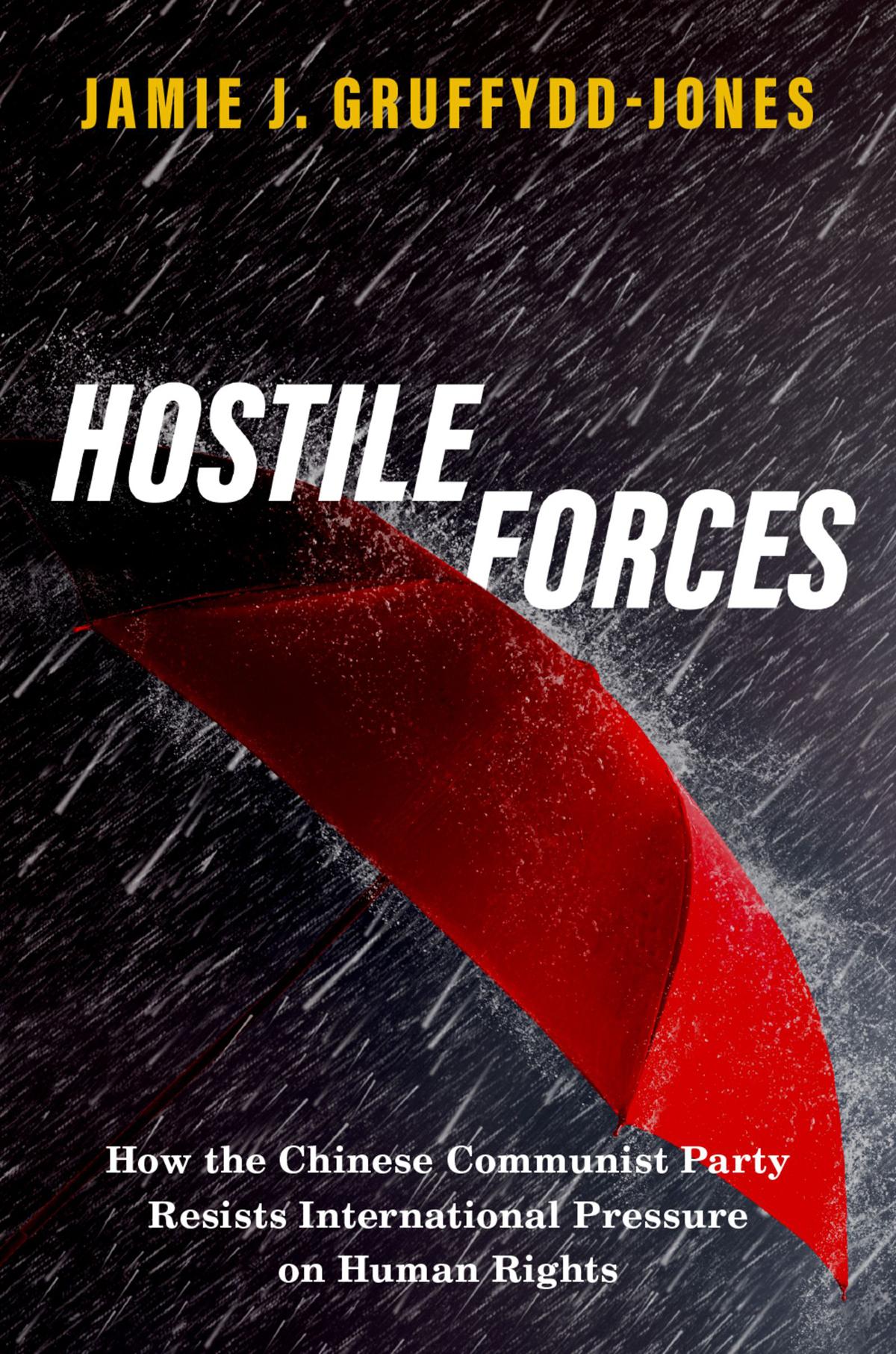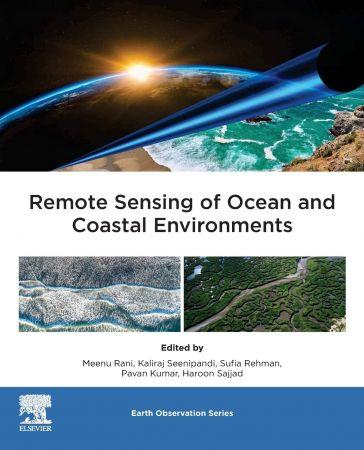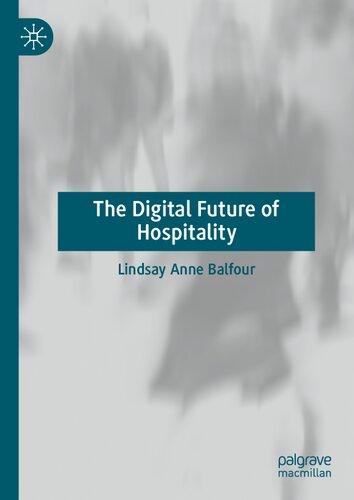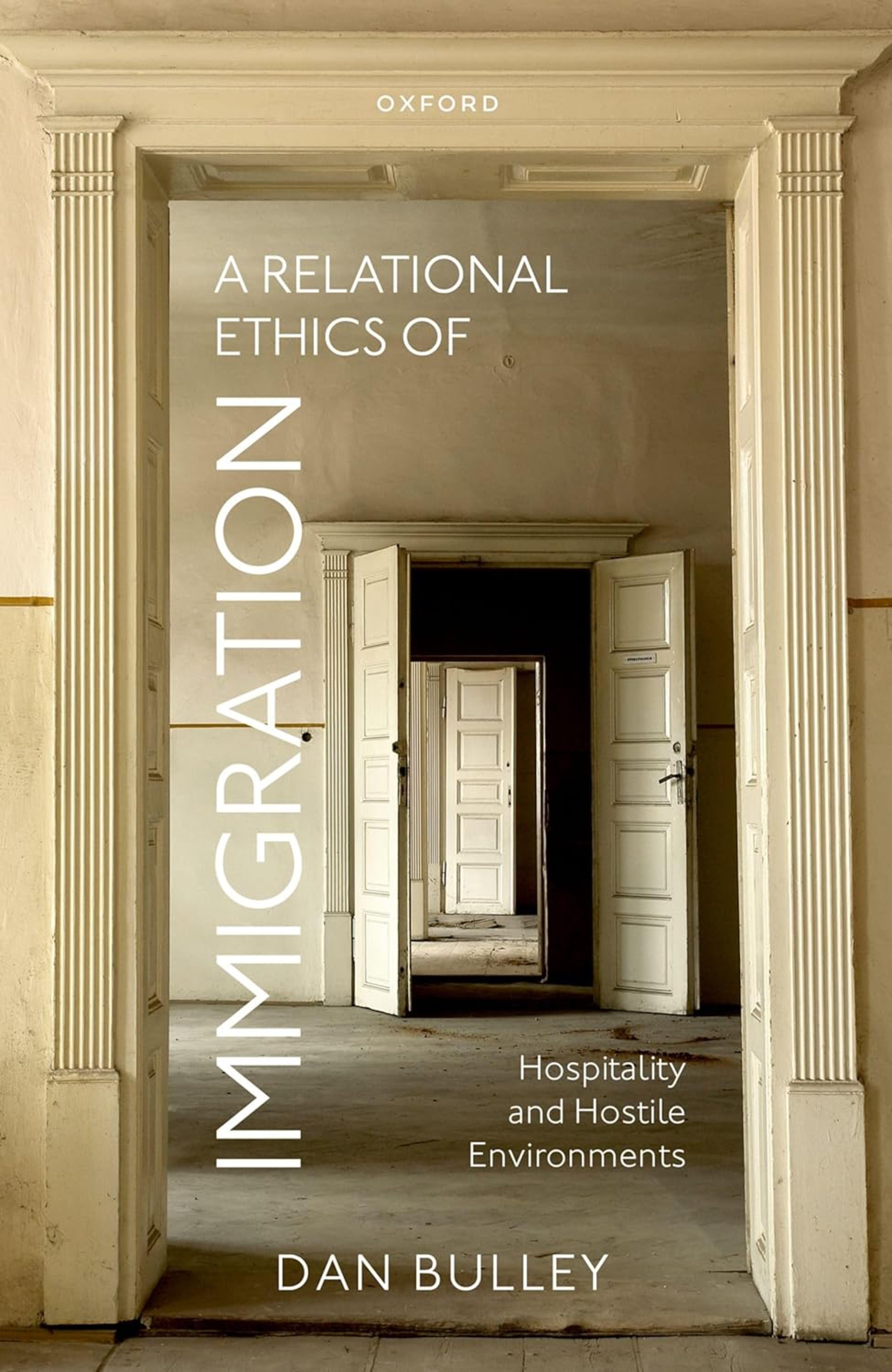A Relational Ethics of Immigration: Hospitality and Hostile Environments Bulley Visit to download the full and correct content document: https://ebookmass.com/product/a-relational-ethics-of-immigration-hospitality-and-hosti le-environments-bulley/
More products digital (pdf, epub, mobi) instant download maybe you interests ...
A Relational Moral Theory: African Ethics in and beyond the Continent Thaddeus Metz
https://ebookmass.com/product/a-relational-moral-theory-africanethics-in-and-beyond-the-continent-thaddeus-metz/
Tourism: The Business of Hospitality and Travel (6th Edition) (What’s New in Culinary & Hospitality)
https://ebookmass.com/product/tourism-the-business-ofhospitality-and-travel-6th-edition-whats-new-in-culinaryhospitality/
Chatbots And The Domestication Of AI: A Relational Approach 1st Edition Edition Hendrik Kempt
https://ebookmass.com/product/chatbots-and-the-domestication-ofai-a-relational-approach-1st-edition-edition-hendrik-kempt/
Tourism: The Business of Hospitality and Travel 6th Edition Roy A. Cook
https://ebookmass.com/product/tourism-the-business-ofhospitality-and-travel-6th-edition-roy-a-cook/
Chinese Immigration and Australian Politics: A Critical Analysis on a Merit-Based Immigration System 1st ed.
Edition Jia Gao
https://ebookmass.com/product/chinese-immigration-and-australianpolitics-a-critical-analysis-on-a-merit-based-immigrationsystem-1st-ed-edition-jia-gao/
Hostile Homes : Violence, Harm and the Marketisation of UK Asylum Housing 1st Edition Steven A. Hirschler
https://ebookmass.com/product/hostile-homes-violence-harm-andthe-marketisation-of-uk-asylum-housing-1st-edition-steven-ahirschler/
Hostile Forces Jamie J. Gruffydd-Jones
https://ebookmass.com/product/hostile-forces-jamie-j-gruffyddjones/
Remote Sensing of Ocean and Coastal Environments Meenu Rani
https://ebookmass.com/product/remote-sensing-of-ocean-andcoastal-environments-meenu-rani/
The Digital Future of Hospitality Lindsay Anne Balfour
https://ebookmass.com/product/the-digital-future-of-hospitalitylindsay-anne-balfour/
ARelationalEthicsofImmigration ARelationalEthicsof Immigration HospitalityandHostileEnvironments DanBulley GreatClarendonStreet,Oxford,OX26DP, UnitedKingdom
OxfordUniversityPressisadepartmentoftheUniversityofOxford. ItfurtherstheUniversity’sobjectiveofexcellenceinresearch,scholarship, andeducationbypublishingworldwide.Oxfordisaregisteredtrademarkof OxfordUniversityPressintheUKandincertainothercountries
©DanBulley2023
Themoralrightsoftheauthorhavebeenasserted Allrightsreserved.Nopartofthispublicationmaybereproduced,storedin aretrievalsystem,ortransmitted,inanyformorbyanymeans,withoutthe priorpermissioninwritingofOxfordUniversityPress,orasexpresslypermitted bylaw,bylicenceorundertermsagreedwiththeappropriatereprographics rightsorganization.Enquiriesconcerningreproductionoutsidethescopeofthe aboveshouldbesenttotheRightsDepartment,OxfordUniversityPress,atthe addressabove
Youmustnotcirculatethisworkinanyotherform andyoumustimposethissameconditiononanyacquirer
PublishedintheUnitedStatesofAmericabyOxfordUniversityPress 198MadisonAvenue,NewYork,NY10016,UnitedStatesofAmerica
BritishLibraryCataloguinginPublicationData
Dataavailable
LibraryofCongressControlNumber:2023942288
ISBN9780192890009
DOI:10.1093/oso/9780192890009.001.0001
PrintedandboundintheUKby ClaysLtd,ElcografS.p.A.
LinkstothirdpartywebsitesareprovidedbyOxfordingoodfaithand forinformationonly.Oxforddisclaimsanyresponsibilityforthematerials containedinanythirdpartywebsitereferencedinthiswork.
Acknowledgements Thisbookhasemergedfromarathertorturedjourney.Theoriginalideacamefrom aquestionMollyCochranaskedduringmyinterviewforajobatOxfordBrookes in2017.Mylastbook—Migration,EthicsandPower—hadbeenpublishedearlier thatyearandMollyaskedifithadincludedacritiqueoftheethicsofimmigration debateininternationalpoliticaltheory.Asthebookfocusedonpost-sovereign,nonstatespacescreatedthroughpracticesofhospitality,ithaddeliberatelyavoidedthat debate.MollysuggestedImightthinkoftacklingitinfuturework.Atfirst,thisseemed towarrantanarticle.However,the10,000-wordpiecelatersubmittedtothe CriticalReviewofInternationalSocialandPoliticalPhilosophy didnotdothetrick.As reviewerspointedout,Ispentalotoftimetalkingabouttheimportanceofpractices ofhospitality,butIdidnotinfactspecifyany—Iwasthereforeluckytobegivena ‘majorrevisions’decision.Workingonthatrevisedsubmission,itbecameclearthat IneededabooktomaketheinterventionIwaslookingfor.Fortunately,OxfordUniversityPresseventuallyagreedwithmyassessment.BigthankstoDominicByattfor allhisworkinbringingthebooktothispoint,whenreviewerswerehardtocomeby. Andtothetwoanonymousreviewersfortheirjudiciousandinstructivecomments. ManyofmycolleaguesatOxfordBrookeshavehelpedmeworkthroughthese ideas.ThanksaredueespeciallytoMollyCochranfortheinitialidea,aswellas numerouscommentsonawrittenversionoftheoriginalarticle.PartsofChapters 1, 2 and 3 werepresentedtothe InternationalTheory and Cultures,Identitiesand Divisions researchgroupsintheGPESResearchCentreatOxfordBrookes.The feedbackfromTamsinBarber,AndreaBardin,VictoriaBrowne,GaryBrowning, EstebanDevis-Amaya,AbbeyHalcli,ChrisHesketh,PeterLugosi,MaiaPal,Doerthe Rosenow,AlexSuttonandLucyFordwasgreatlyappreciatedandstrengthened keypartsoftheargument.Ongoingcriticaldiscussionswithmycollaboratorand colleague,TinaManaghan,havebeenbothencouragingandcrucialtopushing importantelementsofChapter 6.Hopefullyshe’llbeslightlyhappierwithwherethe bookendsup.Perhapsmostimportantly,theideasinthisbookhavepartlyemerged throughdevelopingandteachingmythird-yearoptionalundergraduatemodule,The EthicsofMigrationandImmigration.Threeyearsofexcellentstudentsonthismodulehavesufferedalot,buttheirsufferinghashelpedsharpenthecoreclaims—abig thankstothem.
BeyondBrookes,muchappreciationisowedtoCianO’Driscollforreading sectionsofthebookasitdevelopedandofferingprofoundinsightsandreassurance whenitwasneeded.Similarly,discussionswithmylong-timecollaborator,James Brassett,remaininthebackgroundofmostofwhatIargue,whetherhelikesitor not.MajaZehfusshasremainedmygenerousguideandmentor,evenifshedoes notseewhatIseeinDerrida’srenderingofhospitality.Mostimportantly,thanks
toCian,James,andMajafortheircontinuedfriendship.Inspirationhasalsobeen drawn,oftenunknowingly,fromconversationsandinterventionsonthisandother projectsfromGideonBaker,JonnyDarling,JennyEdkins,NadineEl-Enany,Mark Franke,TomLundborg,GillianMcFadyen,VjosaMusliu,BenRogaly,VickiSquire, NickVaughan-Williams,MoisesVieira,andWilliamWalters.Iamalsoverygrateful toGonulTolforkindlygrantingmepermissiontousehertranslationoftheErdogan quotationthatappearsasanepigraphtotheIntroduction.
ThankstotheLeverhulmeTrust,whohavesupportedthecompletionofthis projectwithaResearchFellowshipin2022–2023.Thisinvaluablefundinghas allowedmetheconcentratedtimeandspacenecessarytofinishthebook.Forhelp andguidanceinapplyingfortheFellowship,thanksagaintoGaryBrowning,Victoria BrowneandtoYvetteRussell.
Thisbookwaswrittenduringanincrediblychallengingtime,whenmyfamilywas formingaroundaguest,littleYasmin,whoisbuildingherbelongingandseizing controlofourhomewithafiercetenacity.Forlove,guidance,andemotionalsupport,Ioweanimmenseamounttofamilyandfriends.Inparticular,CarolShergold, NathanBulley,RachaelBulley,BrunoBulley,BellaSokhi-Bulley,JasonHowick,and ourBrightonfamilyofNadyaAli,DebbieBroadhurst,TarikKochi,MarkNeocleous, ColinPerrin,andBenWhitham.Youguys.Mostimportantly,asever,foreverything, BalSokhi-Bulley.
ListofAbbreviations ANC AfricanNationalCongress
AU AfricanUnion
DACA DeferredActionforChildhoodArrivals
DVLA DriverandVehicleLicensingAgency
EU EuropeanUnion
Frontex EuropeanBorderandCoastguardAgency—Frontièresextérieures
ICIBI IndependentChiefInspectorofBordersandImmigration
IMF InternationalMonetaryFund
IR InternationalRelations
IOM InternationalOrganisationforMigration
JCWI JointCouncilfortheWelfareofImmigrants
MNC MultinationalCorporation
MPI MigrationPolicyInstitute
MPP MigrantProtectionProtocols
MSF MédecinsSansFrontières
MS-13 MaraSalvatrucha
NAFTA NorthAmericanFreeTradeAgreement
NATO NorthAtlanticTreatyOrganisation
NGO Non-GovernmentalOrganisation
NHS NationalHealthService
NRPF NoRecoursetoPublicFunds
OAU OrganisationforAfricanUnity
OECD OrganisationforEconomicCooperationandDevelopment
PEP PermisoEspecialdePermanencia—SpecialStayPermit
RAMV AdministrativeRegistryofVenezuelanMigrants
TANCOSS TanzanianComprehensiveSolutionsStrategy
TCRS TanganyikaChristianRefugeeService
TMF TarjetadeMovilidadFronterizal—BorderMobilityCard
UAE UnitedArabEmirates
UDHR UniversalDeclarationonHumanRights
UK UnitedKingdom
UN UnitedNations
UNDESA UnitedNationsDepartmentofEconomicandSocialAffairs
UNGA UnitedNationsGeneralAssembly
UNHCR UnitedNationsHighCommissionerforRefugees
UNRWA UnitedNationsReliefandWorksAgency
US UnitedStatesofAmerica
Introduction TheaimistocreatehereinBritainareallyhostileenvironmentforillegal migration…whatwedonʼtwantisasituationwherepeoplethinkthey cancomehereandoverstaybecausetheyʼreabletoaccesseverything theyneed.
HomeSecretaryTheresaMay,May20121
Brothers,youhaveopenedyourarmstoour25thousandsiblingsfrom Syria.Now,donotpayheedtothosewhostrivetoexpelthemfromhere. Theypartofour[religious]fraternity.Theycameherebecausetheytrust andbelieveus[…]Wewillbeensar,wewillopenourarms,wewillnever givecredencetothisdiscordandunrest.
PrimeMinisterTayyipErdo˘ gan,11May20132
Democratsaretheproblem.Theydonʼtcareaboutcrimeandwantillegal immigrants,nomatterhowbadtheymaybe,topourintoandinfestour Country,likeMS-13.Theycanʼtwinontheirterriblepolicies,sotheyview themaspotentialvoters.
PresidentDonaldJ.Trump,@realDonaldTrump,June20183
Atthetoughestmomentofmigration,whenthereisxenophobia,persecutionandrejection,Colombiaoptedforfraternitywiththe#TemporaryProtectionStatuteforVenezuelans[#EstatutoDeProtecciónTemporal paravenezolanos]andweshowtheworldthatalthoughwearenotarich country,weareinsolidarity.#JóvenesALaCancilleria.
PresidentIvanDuque,@IvanDuque,9February20214
Withinawidevarietyoftraditionsandcultures,hospitality,welcome,solidarityand friendshipareconsidered‘goods’;virtues,practices,orcharacteristicstobepursued, praised,andprovidedwhereverpossible.Itisraretoseehostilityacclaimedinquite
¹ Quotedin KirkupandWinnett,2012.
² Seetranslationin Tol,2018
³ SeearchivedcopyoftheTweetat: https://perma.cc/K6B4-65AZ (lastaccessed21May2021).
⁴ ‘Enelmomentomásdurodelamigración,cuandoexistexenofobia,persecuciónyrechazo,Colombiaoptóporlafraternidadconel#EstatutoDeProtecciónTemporalparavenezolanosydemostramosal mundoqueaunquenosomosunpaísrico,sísomossolidarios.#JóvenesALaCancillería’.Translatedby Twitter.Availableat: https://twitter.com/IvanDuque/status/1359266992344231936 (lastaccessed21May 2021).
ARelationalEthicsofImmigration.DanBulley,OxfordUniversityPress.©DanBulley(2023). DOI:10.1093/oso/9780192890009.003.0001
thesameway.Untilrelativelyrecently,an‘hostileenvironment’wassomethingwe mightseedescribedinemploymentlawjournals,oronHumanResourceswebsites, assomethingtobeavoidedatallcosts.A‘hostileenvironment’inthiscontextis aworkplacethatknowinglyallowssevere,pervasiveandpersistentdiscrimination againsttheprotectedcharacteristicsofanemployee(suchastheirage,race,religion ordisability;see Muller,2020).Hostilityinthiscontextisfoundinexposuretoovert prejudiceandbigotry.Thisisperhapsthekindofhostileenvironmentforimmigrants createdintheUSandexemplifiedbyformerPresidentTrump’sobjectificationand dehumanisationofimmigrantsas‘illegal’figuresthat‘pour’inand‘infest’thehost countrylikeaplagueofpestsorparasites.⁵
Whenfacedwiththreatening,invasivelife-forms,however,ahostileenvironment canoftenappeartomakesensetoanythingthatconsidersitself‘native’.Forthehost thatfindsithasbecomeinfestedwithunwelcome,parasiticguests,creatingahostile environmentisamatterofextinguishingthemeansnecessaryforthosegueststo continueliving.Inscientificjournals,anenvironmentisdescribedashostiletolife whenithaslowmicrobialactivity,limitedbiodiversityandweakdevelopmentofan ecosystem(WilliamsandHallsworth,2009).Itisonlyinextremelocationssuchasthe hot,saltylakesofAfrica’sRiftValleythatwefindenvironmentstoohostiletosupport lifeassuch(Pennisi,2019).Buteveninitsmorelimitedform,abiological‘hostile environment’issomewherethatsmothersdiversity,stiflesdifference,preventingthe flourishingoflife.ThisismorethesenseinwhichtheUK’sthenHomeSecretary, TheresaMay,usedtheterm.Shedecrieda‘situation’inwhichimmigrantstothe UKfeltthattheycould‘accesseverythingtheyneed’.Thesolutionwasthereforeto removeaccesstosuchnecessities,chokingoffthepossibilityoflifeanditssurvival.
Whatunitesbothformsofhostileenvironmentistheimplicationthatthehost societycanensurethepest,theunwantedguest,experiencestheirnon-belonging, theirunwelcomeness,andthenecessityoftheirexclusionandrejection.Thiscan bedoneeitherintheformofprejudiceanddiscriminationauthorisedorpermitted fromabove,orthroughthesystemicremovalofaccesstothematerialnecessitiesthat sustainlife,suchasfood,heat,water,shelter,andmeaningfulrelationships.Incontrast,appealstohospitality,solidarity,friendship,andcompassionsuggesttheexact opposite:thewelcomingofthestranger,theirtreatmentashumansubjectsworthy ofequalcare,responseandperhaps,even,belonging.
Immigrationisalwaysamatterofhospitalityandhostility:thewelcomereceived orrefused;theextenttowhichthehostsocietymakestheimmigrantfeel‘athome’or outofplace;thelengthoftimetheguestispermittedtostaybeforetheyaredeported or‘integrated’,becomingahostorejectedforoverstayingtheirwelcome.Immigration isalsofrequentlydiscussedusingthelanguageofhospitalityandhostility,whether thecharacterisationismadebypoliticians,internationalorganisations,thenews media,civilsocietygroupsorsimplyaspartofeverydayconversation.Forinstance,
⁵ Eachofthequotations(fromMay,Erdogan,Trump,andDuque)atthestartofthisIntroduction linktospecificpoliciesandpracticesofhospitalitythatwillbethefocusofthecomingchapters.The UK’shostileenvironmentwillbeexploredinChapter 5;Turkey’sfraternalwelcomewillbeexploredin Chapter 3,alongwithTrump’swhitesupremacismandColombia’ssolidarity.
‘RefugeesWelcome’hasbecomeaninternationalnetworkofindividualsandfamilies welcomingrefugeesintotheirhomes.⁶ Ithasalsobecomearallyingcallthatunites cities(e.g.Gdansk,Leipzig,Manchester,Vienna,andZagreb)acrossaEuropethat haslargelycloseditsexternaldoors,andabanneratprotestsandralliesthroughouttheworld(EuropeanResettlementNetwork,2015).Similarly, MigrantsOrganise isaplatformforimmigrantsthemselvestoarrangetheiradvocacy,campaigningto ‘turntheUKintoawelcomingandhospitablecountry’bydirectlychallengingthe government’shostileenvironment.⁷ IntheUS,groupssuchas WelcomingAmerica seektobuildhospitablecommunitiesthroughlocalworkandnationalcampaigns like‘BelongingBeginswithUs’.Suchcampaignsaimtobuild‘amorewelcoming nationwhereeveryone—regardlessoftheirbackground—canfeeltheybelong’.⁸ A moreovertlyreligiousresponseisfoundintheCatholicNGOsandcharitiesthat makeupthenetworkofshelters,localcommunities,andhumanitarianorganisations alongtheMexicanmigrationcorridor.This DimensiónPastoralDeLaMovilidad (PastoralDimensionofHumanMobility)networkaimstoprovidehospitalitytopeopleintransit,seekingentryorwhohavebeendeportedfromtheUS(Olayo-Mendez etal.,2014).
However,asweseewiththequotationsfromErdo˘ganandDuquethatbegan thisIntroduction,thelanguageofhospitalityisnotconfinedtograss-rootsactivists, charities,andsocialmovements.IthasbeencentraltoTurkey’sresponsetoSyrian refugeesandColombia’sjustificationfortakingindisplacedVenezuelans.Andthese arenottheonlyexamplesofhospitablestateresponses:inFebruary2017,UNSecretaryGeneralAntonioGuterrespraisedGermany,andspecificallyChancellorAngela Merkel,foractingasasymboloftoleranceand‘hospitality’towardsthoseforcibly displacedbytheSyrianregime,a‘symbolIwouldliketoseefollowedinmany,many otherpartsoftheworld’(UNNews,2017).Likewise,inMarch2018,theUNHCR andtheIOMlaunchedajointappealfordonorstomeettheneedsofthe900,000 Rohingyarefugeesand330,000‘vulnerableBangladeshisinthecommunitieshosting them’.TheBangladheshigovernmentandpeoplewerepraisedfortheir‘extraordinarygenerosityandhospitality’,withtheUNResidentCoordinatorinBangladesh notingthatthishospitalitywentfarbeyondprovidingimmediateprotection:
Intermsoffirstresponders,intermsofprovidingland,intermsofkeepingits bordersopen,intermsofprovidingasylum,intermsofbuildingroads,extending electricitynetworks,providingfood,secondingcivilservants,providingpoliceand armytokeeporderinthecamp.Thebiggestdonortothiscrisiscontinuestobethe peopleandthegovernmentofBangladesh.
(UNHCR/IOM,2018)
⁶ See https://www.refugees-welcome.net/.
⁷ Forexample,MigrantsOrganiseledthewayinestablishingtheNationalRefugeeWelcomeBoard, coordinatingactivistinterventionsinthehostileenvironment.Thisalsoincludedcampaignssuchas ‘PatientsnotPassports’aimstokeeptheNHSopentoall.See: https://www.migrantsorganise.org/?page_ id=26373
⁸ See https://welcomingamerica.org/belonging-begins-with-us
TheseelementsoftheBangladeshiwelcome—includingfood,space,energy,protection,infrastructure,andresources—areprovidingpreciselyfortheliving‘needs’that ahostileenvironmentseekstostifle.Whatthisbrieftourofglobalexamplesdemonstrates,then,isthathospitalityandhostileenvironmentshavebecomethelanguage ofeverydayimmigrationethics.Thesearetheconceptsandpracticesthroughwhich societiesunderstandandnegotiatetheirresponsibilitiesandobligationstowardsthe inclusionandexclusionofthosecomingfromoutsidetheirborders.AsMirielle Rosello(2001:6)argues,‘whetherornotthewordisexplicitlyused,hospitalityis nowatthecenterofthispolitical,social,andeconomiccontroversy’ofimmigration. And,ofcourse,thiscontroversyisalsoalwaysalreadyoneofethics—responsibilities, obligations,rights,andjustice.
Acentralclaimofthisbook,then,isthatthelanguageandpracticeofhospitalitymustbeunpackedandunderstoodintheincreasinglynoisyimmigrationethics debatetakingplaceininternationalpoliticaltheory.Butwhatmight‘unpackingand understanding’hospitalitymean?Untilquiterecently,academicdiscussionofthe responsibilitiesandobligationsincurredbythemovementofpeopleacrossstatebordershasbeenlargelyabsent,especiallyinthedisciplineofpolitics.Latterly,there hasbeenasteadilygrowinginterestintheconceptandpracticeofhospitality,with anincreasinglywiderangeofbooksexploringitshistorical,gendered,commercial,racial,philosophical,spatial,religious,andpoliticalaspects(see McNulty,2007; Molzand Gibson,2007;Hamington,2010a; Baker,2011; 2013; Claviez,2013a; Siddiqui,2015; Bulley,2017a).Yet,asIwilloutlineinChapter 1,westilllackaproper explorationofwhathospitalitymightmeanintermsofimmigrationethics,aninvestigationthatrespondstothemorepopularclaimsforopenborders,noborders andindividuals’righttofreemovement(Hayter,2003; 2004; Andersonetal.,2009; Carens,2013; Bauder,2014;Jones,2017),orfortheconstrainedrightsofstatesto restrictthatmovementandcontrolitsborders(Walzer,1983;Miller,2007;Wellman, 2008; Bauböck,2009; Pevnick,2011; Miller,2016).
Totakehospitalityseriouslymeansofferingitthesamelevelofcriticalattentionas discussionsthatoriginateinliberalprinciplesoffreedomandmoralequality,human rights,andcommunalself-determination.Giventhatsomuchofthepublicdebate aroundhowstatesandsocietiesoughttorespondtomigrationrevolvesaroundhostingandhostility—theacceptanceandabuseofhospitality,makingrefugeeswelcome andmakingthemunwelcome,theopeningandclosureofarmsandhomes—itistime hospitalityreceivedtheattentionitdeserves.Ultimately,myclaimisthathospitality canofferaverydifferent, relational approachtotheethicsofimmigration;analternativevoicetothemorestraightforwardlynormativepositionsofopenborders,free movementandstates’rightstobordercontrol.
HospitalityasRelationalPractice:CaveatHospes Whatissoimportant,invigoratingandinfuriatingabouthospitalityisthatitis notthekindofabstractandrigorouslyexplicableideathattendstodominateacademicethicaldebates.Ithascertainlyplayedlittlerolewhenthosedebatesconcern
immigration.Hospitalityisnotasgrandorall-encompassingas‘humanrights’ (Benhabib,2004),inthatitdoesnotseektocoverallbasesorgrounditselfinauniversalunderstandingthe‘human’.Equally,hospitalityisnotnovelorunfamiliarin thesamewayasaconceptsuchas‘non-domination’(HonohanandHovdal-Moan, 2014).Nordoeshospitalityalienateactivists,politiciansandundergraduatesbybeing asabstractandunapproachableasideaslike‘associativeownership’(Pevnick,2011). Itisrecognisable,comfortableeven.Itissomethingweseeasagrounded,everyday experience,anormalpracticeofhumansociality—theacceptanceandwelcomingof othersfromoutsideinto‘our’homespace,andviceversa.Thereisnothingambitious orexceptionalabouthospitality;onthecontraryitappearsratherdullandbanalnext totheexpansiveselflessnessofdeontologicalcategoricalimperatives,orthehardnosedcalculationsofconsequentialism.Itisnotsuitedtoforminganegalitarian theoryofglobaljusticewithinwhichthedominanttheoriesofimmigrationethics placethemselves(Walzer,1983; 1994; Miller,2007; Carens,2013).Indeed,hospitalityappearssolimited,unambitious,andfamiliarthatmanytookitforgranted beforetheglobalCovid-19pandemicmadehostingfirstlargegatherings,andlater singleindividualsandevenfamilymembers,acriminalactinmanycountries.⁹
Thecommonplace,everydaynatureofhospitalityisperhapswhatmakesitso appealingtopublicandprivateactors,fromstatestocivilsocietygroups.Itisan easywayofcommunicatingpolicies,responsibilities,andgoalstoawiderpublic. Asametaphor,hospitalityisasimplewaytomakesenseofandunderstandwhatis goingoninimmigration—whereanationalsocietystandsinasanupscaledversion ofthefamilyhomeandthemigrantbecomesawelcomeorunwelcomeguest.But itisalsoa‘metaphorthathasforgottenitisametaphor’(Rosello,2001:3).States andtheirbordersareincreasinglygovernedasiftheywerea‘home’,withdepartmentsof‘HomelandSecurity’and‘HomeOffices’,discussionsof‘fortress’Europe andmigrantstoldto‘GoHome’(Walters,2004;Jonesetal.,2017).Alongwithhostile environmentsthishasmeantthatimmigrationpoliciesandtheirdailyenactmentare treated literally aspracticesofhospitality.Thoughtheveryeverydaynessofthisrenderingmakesitappealingforpublicdebate,italsomakeshospitalityanimprecise, messy,andelasticmodeofbehaviour.Standardsandnormsofreceivingstrangers varywildlydependinguponcontext,culture,time,andplace.Judith Still(2011) has notedthatalargepartofhospitality’sappealisthatitisseenasuniversallysignificant.Butthatveryuniversalitycaneasilycoveroverthefactthat‘hospitality’means differentthings,atdifferenttimes,todifferentculturesandtraditions.
Thisvarietyincludesdisparitiesoveratleastthreethings.First,thereisnoagreementoverwhoorwhatevenconstitutesthe subjectofhospitality—whoisaguest andwhoisahost?Arefriendsandfamilytheonlygueststowardswhomonehasa trueresponsibility?Orarefriendsandfamilyactually‘hosts’,andtruehospitality isaccordedonlytocompletestrangers,assuggestedbyJacquesDerrida(in DerridaandDufourmantelle,2000:25)?Asecondelementinitsdiverseconstitution regardsthe spaceofhospitality—howmuchofthehomemusttheguestbegiven
⁹ Forausefulmapof‘stayathome’restrictionsandtheirdevelopmentthroughthepandemic(from1 January2020),see https://ourworldindata.org/covid-stay-home-restrictions
accessto?Onlythe‘reception’rooms,ortheentiretyofthespace?Mustthehostliterallymaketheguest‘feelathome’,givinguptheirownfeelingof‘at-homeness’and ultimatelyreversingtherelationshipandbecomingaguest(Derrida,1999:92–93)? Andfinally,disagreementaboutregardingthe temporalityofhospitality—howlong musttheguestbeallowedtostay?EventhefamouslygenerousBedouinhospitality onlylastsforthreedaysandathird(Shryock,2012).So,whendoesaguestoutstay theirwelcomeandwarrantexpulsion?Andwhenhasaguestbecomesoestablished, sointegrated,soincharge,thattheybecomeahost?
Intheseenquiries,itbecomesclearthatquestionsaboutthesubject,spaceand timeofhospitalityallimplicateandoverlapwitheachother.Equallyclearisthatthey havenosimpleoruniversalanswers.Neitheristhereaneasyanswertothequestion ofwhenrestrictionstothesubjects,spacesandtimesofhospitalityslidebeyondthe acceptable—whenourhospitalitybecomesitsapparentopposite,turningthehome intoahostileenvironment.Hospitalityisthoroughlymarkedbythisimprecisionand insecurity;hostilityisnottheoppositeofhospitalitybutalwayscontainedwithinit. WecanevenseethisetymologicallyinthefactthatforbothLatin(hospes)andFrench (hôte),thesamewordisusedforboth‘host’and‘guest’.Thesubjectofhospitality isunstable,reversibleandinterchangeable:asDerridanotes,thegiving,openhost (hôte)caneasilybecomethe hostage oftheguest(hôte)(in DerridaandDufourmantelle,2000:123–125).Hospitality,astheopeningofthehometothestrangerisnota peacefulgesturethatinstitutesjusticeandequality.It marks apowerstrugglerather thanendingit:astruggleoverthesubject,spaceandtimeofhospitalitythathasno easyresolution.Itisinthissensethat,justascontractlawcustomarilydictatescaveat emptor (letthebuyerbeware)regardingthepurchaseofproperty,anyinvocationof hospitalitymustbeaccompaniedby caveathospes (lettheguest/hostbeware).
Thesemanycaveatsandblurryedgessurroundingthesubject,spaceandtime ofhospitalitymayleadonetodespairofeverdefiningit.Derridawarnsusofthat anyprecisedelineationofhospitalityisdoomedtofailasitsvariabilityrefusestobe tamedwithindiscretelimits(2000:6).Forothers,thisambivalencemakeshospitalityaninterestingbutultimatelyinappropriateanddoubtfulconceptforemployment inethicaldebates(Benhabib,2004:39; Altman,2017:94).Iagreewithpartsofthis argument:hospitalityisnotan idea ora concept thatcanbedrawnoutanddefined intheabstractandthenappliedtoconcretesituations,inimmigrationorelsewhere. ItdoesnotfitwiththisvisionofwhatIcallnormativeethics,whichMargaretUrban Walker(2007:58)¹⁰ describesasfollows:
Theregnanttypeofmoraltheoryincontemporaryethicsisa codifiable (andusually compact)setofmoral formulas (orproceduresforselectingformulas)that canbeappliedby any agenttoasituationtoyieldajustifiedanddeterminate
¹⁰ MargaretUrbanWalkerdoesnotdescribethisdominantunderstandingofethicsas‘normative’,but Ipreferthislabeltothatwhichsheuses:the‘theoretical-juridical’model.Thisisdealtwithfurtherin Chapter 2.However,itisimportanttonoteherethatIamadaptingWalker’sworkthroughoutthisbook, ratherthanemployingitinastraightforwardfashion.Itakeinspirationfromher‘expressive-collaborative’ modelinconstructinghospitalityasarelationalethics,butmyadaptationislooseratherthanslavishly followingherapproach,andtheresultisunlikelytobesomethingshewouldfindeasytoendorse.
action-guidingjudgement.Theformulasorprocedures(iftherearemorethanone) aretypicallyseenasrulesorprinciplesatahighlevelofgenerality…Theseformulasmodelwhatthemorallycompetentagentoridealmoraljudgedoesorshould know,howeverimplicitly.
Hospitalitydoesnotallowitselftobetranslatedintothiskindofethics.Thereare toomany caveats impingingonthe hospes (hostandguest)topermithospitalityto becomeacodifiableformula,evenifwethoughtthatthisiswhatethicsis,orwhat itoughttobe(whichIdonot).Rather,thevalueofhospitalityliesinthefactthatit isa practice—whatIamdefiningasasetofbehavioursthatmakesensewithin,are producedby,andconverselyalsoreproduce,aspecificsocialandpoliticalcontext.It isa‘performedactivitydirectedatparticularindividuals’andgroups(Hamington, 2010c:32).Ifweabstracthospitalityfromthatparticularcontext,drawingitout, findingits‘true’principlesasanormativeconceptthatwilltellus‘right’from‘wrong’ or‘good’from‘bad’,itisnolongerapractice.AsPierreBourdieuargues,totreat practicesinsuchawayistostripthem‘ofeverythingthatdefinesthemdistinctively aspractices,thatis,theuncertaintyand“fuzziness”resultingfromthefactthatthey haveastheirprinciplenotasetofconscious,constantrules,butpracticalschemes, opaquetotheirpossessors,varyingaccordingtothelogicofthesituation’(Bourdieu, 1990:12).
AsIwillargueinChapter2,thoughpracticessuchashospitalitycannotbedefined inprecise,codifiableformulasanduniversalterms,wecansaysomethingabouttheir structuralorganisationaspractices—whatseparatesthemfromother,similarpracticessuchascaring,humanitarianismorfriendship.Whateverelseisinvolvedin hospitality,Isuggestthatitisalwaysa spatial and emotional practiceinwhich power isemployedtoincludeandexclude,enforcingbelongingandnon-belonging.Initself, thisdefinitionispurelystructural—itpointsonlytotherelationsbetweenmoving parts(space,emotion,power),partsthatwillbeverydifferentlyconstituteddependinguponthecontext.So,whereascaringandhumanitarianismmayrequirespatial andemotionalelements,theemotionsinvolvedarerarelythoseofbelongingand non-belonging;thespatialelementsdonotnecessarilyincludethemovementacross athresholdofbelonging;andtheexerciseofpowerisunlikelytobeemployedto includeandexcludefroma‘home-like’space.Myclaimisthatforaparticularactivity tobeconstitutedasoneofhospitalityand/orhostility,itrequiresastructuralrelation betweenthosespecificparts:space,emotion,andpower.
Whatthisdefinitioncannotofferisthenormativeformulasthatregnantmoraltheorywouldperhapsaimfor,aclearsetofguidanceonhowhospitality,theinclusion andexclusionofothers,ought tobepracticed.TherenderingIamofferingisprimarilydescriptive,withoutclearresourcesforprescription.Ratherthantreatingethics asadeterminablecodeforhowwe ought tobehavetowardsstrangers,Iproposehospitalityasarelationalethics—anethicswithoutmoralism—thathelpsusunderstand andpossiblytransformthewayweactually do embraceandevadeobligationsand responsibilitiestoeachother.Idonotarguethatbeinghospitableisanethicalgood; theargumentisnotthatweshouldbemoreopen.Rather,hospitalityisdevelopedasa structuralandemotionalresponse,apracticewhichinvolvesdrawingandredrawing
boundariesofinsideandoutside,belonging,andnon-belonging,responsibilityand itsevasionordeflection.Ittherebyactivelycreatesasocietyasacommunalspacewith aparticularethos,ratherthanwelcomingstrangerstoapre-existingcommunity.
Hospitalityisthereforetreatedasacriticalmodeofreflectingon how wecreate a‘we’andrelatetoothers.Itisa‘performativeactofidentity’inthesensethatitis onlyinthepracticalaction,theperformanceofwelcomeandunwelcome,thatthe host(whetheranindividualorasociety)comesto be,and beknown (Hamington, 2010c:24).Howwerelatetoothers,welcomingandrefusingthem,makingthem comfortableorencouragingtheirinsecurity,tellsusaboutasociety’slived,concrete identity,ethics,andvalues—nottheethicalprinciplesit claims or professes,butthose itactuallyenacts Itisinthissensethatwecansay,‘[h]ospitalityiscontext’(Ahmed, 2010:118).Andonlythroughsuchareflectiveunderstandingofsocialcontextandits practicesofwelcomecanwehopetotransformimmigrationregimes,sotheybetter reflectanalternativeoraspirationalethos,orsotheysimplycultivateratherthan undercutasociety’scapacitytorespondtothosetheyconstituteasoutsiders.
Myunderstandingofethics,then,emergesfromatraditionthatIrefertoas ‘relational’—atraditionthattiestogetherpartsofcriticalfeminist,poststructuralist,decolonialandnon-WesternphilosophiessuchasConfucianismandsouthern African ubuntu (see Robinson,1997; Fagan,2013; Tronto,2012;Metzand Miller, 2016;Odysseos,2017;Hutchings,2019;Ngomane,2019).Despitethemassivedifferenceswithinandbetweentheseapproaches,allacceptthatparticularresponsibilities forotherpeoplearenotgeneratedsimplybyacommonhumanity,orashared citizenship/nationality.Rather, particular responsibilitiesaregeneratedthrough interaction,interdependence,andconnection.Whetherthoserelationshipsaretight orlose,closeordistantintimeandspace,whethertheyareeconomic,political, social,historical,orbiologicalinnature,theyaremorallysignificantandgenerate responsibilities(Young,2006; Tronto,2012).
InChapter 2 Ithereforeoutlinehospitalityasarelationalethicsthateffectively helpsusdrawoutwhereourresponsibilitieslieandhowwe‘map’andassignthem, endorsingandacceptingsomeasrequiringresponse,whiledeflectinganddenying others(see Walker,2007).Suchamapping,Iargue,doesnotincludetheresources totellushowresponsibilities ought tobeassignedandaccepted.Rather,itoffers anunderstandingofasociety,aculture.Itpromptscriticalreflectionratherthan necessitatingmoralendorsementordisgust.Possiblere-mappings,includingactionablechanges,arealwaysavailable;wecanseetheminthewayasociety’sethos ofhospitality,itsresponsibilitymap,iscontestedandopposedfromwithin.Other responsesalwaysexist,counteringthedominantapproach(aswewillexploremore inChapter6).Butthereisnotimeless,universal,idealscenarioofwelcome.Advocacy ofa‘better’,moreresponse-ablevisionofhospitalityiscrucial.Butitisanethicopoliticalstancewemusttakeandnegotiateinaparticularcontext,accordingtothe differentforcesandfactorsatplay.The right waytowelcomeorrejectotherscannot begeneratedorendorsedinanysimplewayfromarelationalethicsofhospitality. Whatwehavethenisanother caveathospes.The‘relationalethics’ofhospitality thatIwillexploreandunpackinthisbookdoesnotoffersecurity,aguaranteeof
bestpractice,rightconductoraclearconscience.Myrenderingofhospitalitydoes notofferitupconceptuallyasasetoffirmprincipleswhichcanguideactionsand judgements.Suchanormativeunderstandingofmoralinquiryasa‘safetynet’,which promisesandassuresusofourowngoodness(Caputo,1994:18),isnotwhatIam aimingforletalonehitting.Farfromit.¹¹ Iamnotattemptingtocleanupthemessinessofhospitalityasaneverydaypractice,bluntitssharpedgesorpolishawayits imperfections.Instead,Iseethatmessiness,thosejaggedboundariesandlimitations askeycharacteristicsofanethicsthatexploresandreflectsuponconcretesituations, realinter-humanrelations,andtheresponsibilitiestheygenerate.Sucharelational ethicscanonlyoperateinandthroughtherealworldofinconsistencies,powerstrugglesandresistancewithouttheexpectationofultimatelyresolvingorpacifyingthe skirmish.
NotesonMethod Thebook’sargumentemergesfromtheclaimthatforethicalandpoliticaltheoriststo haveapurchaseonimmigrationdebates,theyneedtostartfromtheactualbehaviour ofimmigrantsocietiesandthelanguagecommonlyusedtojustifyandcontestits practices.Whilstpublicdiscussionsof‘our’responsibilitiesforimmigrantshastaken placeintermsoftheeverydayexperiencesofhospitalityandhostility,recent scholarly debateonimmigrationethicshasbeendominatedbylargelyabstractconcepts takenfromnormativeliberal(international)politicaltheory.Ratherthanisolatean idealfromthemessinessofhospitality,makingitintosomekindofnormativemodel, suchasanunconditionalopennessoranideallyconditionalwelcome,Iadvocate exploringhospitalityasagrounded,relationalethics.Todosorequiresthatwetreat hospitalityasasetofpractices,actionsandinactionsthatmakessensewithin,are producedby,andconverselyalso(re)produce,aspecificsocialandpoliticalcontext.Suchpracticesofmakingwelcomeandunwelcome,encouragingbelonging, andenforcingnon-belonging,needtobedrawnoutofspecificexamplesinthe contemporaryworld.
TakingmyleadfromMargaretUrbanWalkerandher‘mappings’ofresponsibility, then,themethodIemployinthisbookisoneof‘reflectiveanalysis offormsofmoral life’,ananalysisthatcan‘onlyoperateoninformationabouttheflowofinteractions indailylife’(2007:11).Todrawoutthelived,everydayethicsofaparticularpolicy orpractice,suchareflectionneedstocompareandcontrastbetweensocietiesand withinthem.Wecanmosteffectivelydrawouttheethosofasociety,theparticularwaysinwhichitmapsitsresponsibilitiesforbothnationalsandnon-nationals, throughacontrastwithothersocietiesthatmayespousesimilarordifferentvalues andwaysofbeing-in-relation.Forinstance,IbeganthisIntroductionbycomparing
¹¹ AsDerridanotes,‘Anethicswithguaranteesisnotanethics.Ifyouhaveanethicswithsomeinsurance, andyouknowthatifyouarewrongtheinsurancewillpay,itisn’tethics.Ethicsisdangerous’(in Payne andSchad,2003:31–32).
thelanguageofhospitalityandhostilityusedbyUK,Turkish,USandColombian politicians—examplesIwillgoontoexplorefurtherinChapters3–6.Butwecanalso notehowaparticularsociety’sethosisendorsedorcontested,bothfromwithinby domesticsocietalactors(see WelcomeAmerica and SanctuaryCities intheUS),and bytransnationalactorsininternationalsociety(RefugesWelcomeInternational and theUNHCR).Theprimarymethodofthebookisthereforetodrawouttheparticularwaysinwhichresponsibilityisassigned,accepted,deflected,anddeniedthrough practicesofhospitalityandhostilityinstatesandsocietiesaroundtheworld.This willincludearangeofillustrativeexamplesinChapters3–6,includingpracticesfrom Australia,Canada,Colombia,Turkey,Lebanon,Tanzania,theUnitedArabEmirates (UAE),theUK,theUSandVanuatu.
Atrueattempttodrawoutaculture,ethosor‘moralorder’ofasociety,isofcourse enormouslydemanding,intricate,andarduous.Suchamethodisneverthelessnecessarytoarelationalapproachthattriestostepbeyondatheorist’sownbeliefsand understandings.AsWalkeroutlinesit:
Anempiricallysaturatedreflectiveanalysisofwhatisgoingoninactualmoral ordersneedstobesuppliedbymanykindsoffactualresearches,includingdocumentary,historical,psychological,ethnographic,andsociologicalones.These researchesarenotthemselvesmoralphilosophy,butwithoutthemethicshas nothingtoreflectonbutmoralphilosophersʼownassumptionsandexperiences. Givinguponthepurecoreofmoralknowledge,andtryingtomakethebestand mostcompletesenseofalltheinformationwecangetabouttherealformsmorality takesindiversehumanlives,isnosmalltaskformoralphilosophy.
(2007:11)
Arelationalapproachisnot,however,purelydescriptive—italsorequirescritical reflectionontheculturesofresponsibilitythataredrawnoutbytheseempirical enquiries.Suchcriticalreflectionaskswhetherthese‘moralunderstandingsreally areintelligibleandcoherenttothosewhoenactthem’,whethertheycanaccountfor themselvesmorallyintheirownterms,whether‘whatisgoingoninmoralorders makestherightkindofsensetotheparticipantsinthosewaysoflife’(2007:12).To putthisindifferentwordsforanimmigrationcontext,criticalreflectionmeansaskingwhetherthevaluesrevealedbypracticesofhospitalityareanaccurateimageofa society’sself-understanding.Whatkindofethosisunveiledbyasociety’spracticesof hospitalityandhostility?Istheethosacoherentandfairreflectionofhowthatsociety sees‘itself’intermsofmoralbeliefs,attitudes,andstandardsofbehaviourtowards others?Isasociety’smappingofitsresponsibilities—thoseitacceptsandthoseit deflects—afairreflectionofitsself-image?Doesthismappingeffaceandignore responsibilitiesgeneratedbyhistoriesofinteraction,interdependence,andconnection?Wouldamorecoherentethos,oramorecompletemappingofresponsibilities, leadtomoreorlessopennesstostrangers?Inwhatwayscouldsuchahospitalitybe moreresponsivetothosewithwhomasocietysharessignificantconnections?
Afterhavingnotedabovethathospitalitydoesnotlenditselftograndvisionsof ethicaltheorising,suchamethodnowappearsalmostoutrageouslycomprehensive andfar-reaching.The‘empiricallysaturatedreflectiveanalysis’ofarangeofdifferentsocietiesisbeyondoneacademiccareer,letaloneonebook.Wecertainlycannot caterforitthroughwhatI’mcallingarangeof‘illustrativeexamples’.Ialsolackthe sociological,anthropological,psychological,historical,anddocumentarytraining forwhatWalkerisrecommending.Forthisreason,Ihavemadetwomethodologicalchoices.First,Itriedtostrikeadifficultbalancebetweenthegeneralandthe particularwhenitcomestoanalysingpracticesofhospitality.Ideally,analysesof moralorders,lifeworldsandtheircontestationwouldtakeplaceataclose,finegrainedlevel,allowingperhapsonesocietalcasestudytobelookedatindepth.This ishowtheworkofElenaFiddian-Qasmiyehandhervariouscollaboratorsoperates— bringingtogetherdetailed,ethnographicstudiesofhowhospitalityisconductedin particularlocalities,refugeecampsandcommunitiesfocusedontheglobalsouth (see BergandFiddian-Qasmiyeh,2018; Fiddian-QasmiyehandQasmiyeh,2018; Fiddian-Qasmiyeh,2020).Iwantmyexamplestoincludesuchdetailedanalyses, whicharebasicallyignoredinliberalinternationalpoliticaltheoryinfavourofthe biggerpictureofglobaljustice.
Butunlikethesemeticulousethnographies,Ialsowanttobeabletotalkaboutthe widerframeandmakemoregeneral,comparativeclaimsacrosssocietiesoftheglobal northandsouth,aswellasacrossgroupswithinsocieties.Thisidentificationofmore generaltrendsandcomparisonsisdevelopedandtakesinspirationfromtheworkof afeministtheoristofhospitality,Maurice Hamington(2010b; 2010c).However,his briefbutsignificantcontributionstothedebatedonotengagedetailedempirical examples—likeJacquesDerrida’swork(DerridaandDufourmantelle,2000; Derrida,2000; 2001; 2002; 2003),theconcentrationisonexegesisofothertheoristsand philosophers.
Thegeneralcomparisonofexamplesisnecessarytorevealdifferences,alternativewaysthatresponsibilitiesareacceptedanddeflected,welcomeisextendedor retracted,linesofbelongingaredrawnandredrawn,andenvironmentsaremade moreorlesshostile.Withoutacertainabstraction,wecouldnotcompareandcontrasttheculturesofwelcomeofferedtopeoplewhohavebeenviolentlydisplacedin theUS,UK,Colombia,andTurkey,forexample.Andwithoutitwecouldnotinclude illustrativeexamplesfromboththeglobalnorthandtheglobalsouth.AsIwillargue inChapter 2,oneoftheadvantagesoffocusingonhospitalityisthatitallowsthe chanceofanon-Eurocentricethicsofimmigration.Unlikeliberalnationalismand liberalcosmopolitanism,orevensomepartsofMarxism,hospitalityallowsusto exploreawidervarietyofsocieties,includingthenon-Western,theilliberalandthe non-democratic.Followingpracticesofhospitalityallowsustoexplorespacesthat donotnecessarilyrespecttheliberalvaluesdemandedinacademicdebateandyet haveoftenprovenmuchmoreopenandwelcomingtoimmigrants.
Suchcriticalcontrastsdemandacertaingenerality;theycannotrealistically includethedetail,precisionandempiricalsaturationrequiredofarelational
approachtoethics.Thisisperhapswhysomanycriticalapproachestotheethics andpoliticsofimmigrationhavefocusedonin-depthanalysisofspecificcasesof solidarity,compassion,andhospitality(seeexamplesinChapters 2 and 6).Andit isperhapswhytherehasbeennomajorattempttoprovideabook-lengthrelational ethicsrivaltothetraditionalethicsofimmigrationliterature.However,asIhavechosentoofferawiderangeofbriefillustrativeexamples,myanalysisalsooftenfocuses onimmigration policies ratherthan practices inaBourdieusiansense.Policiesare treatedashigherlevelplansandguidanceforhowhospitalitypracticesaremeant tobecarriedoutatalowerlevelofstateorsocietalauthority.However,atacertain level,policiesandpracticesblendintoeachother,formingtheconcretebehaviour, actionsandinactionsofhostsandguests.Morespecific,grounded,in-depthand detailedanalysesoflocalpracticesofhospitalityarethereforeimportantresources forChapters 3–6,evenifthecriticalanalysisprovidedbythisbookoperatesina broader,comparativecontext.
Asecondmethodologicalchoiceisthat,partlybecauseIlacktheexpertiseand detailedcontextualknowledge,Ihavebasedmycriticalanalysisintheexisting meticulousandinformedresearchofothers.Wherepossible,thisistheworkofgeographers,anthropologists,historiansandsociologists;wherenosuchresearchexists,I haveusedreportsfromjournalists,NGOsandresearchinstitutions(e.g.theMigrationPolicyInstitute),internationalorganisations(e.g.theIOMandtheUNHCR) andcharities.Thisisnotnecessarilyasecond-bestoption.Criticaltheoristsneed tobekeenlyawareoftheirownpositionality,nevermoresothanwhentheyarea whitemanseekingtorepresentcultures,societies,andcommunitiesofwhichthey havelittleornolivedexperience(suchasColombiaandTurkey).Ithereforestrive forself-reflectionandaconstantawarenessofmy‘unearnedauthority’inthisregard (Walker,2007:57).Asmuchaspossible,Ihavetriedtoincludethevoicesofthose thatconductorexperiencethepracticesofhospitality,orthathavethecontextual knowledgethatIlack,speakingforthemselves.IdothisinawarenessofthepowerI exerciseineditingandcuratingthosenarrativesanddescriptions.
Withthisinmind,threegroupsofquestionsanimatethisbook’sinvestigationinto particularnationalexamplesoftheethicsofimmigration.Thefirstgroupasks,how aretheresponsibilitiesforthoseenteringorseekingentrymappedbyparticularstates andsocieties?Thismeansasking,inpractice,whoisassignedtheresponsibilityfor welcomingwhom?Whoacceptsthatresponsibilityofhospitality,andwhen?Who deflectstheresponsibilitytowelcomeandonwhatbasis?Asociety’spracticesofhospitalityareareflectionofthisresponsibility-mapping,sothesequestionsarecrucial toreproducingaparticularillustrativeexample.Thesecondsetofinquiries,however, askshowcompletethismapis:whatrelationalties(historical,social,cultural,political,economic)arebeingembracedinitsimmigrationpoliciesandpractices?Which arebeingdeflected,orassignedelsewhere?Andwhichareeffectivelybeingeffacedor deniedaltogether?Thethirdandfinalinquiryaskswhateachsociety’smappingsof responsibilityandpracticesofhospitalitytellusaboutitsethos,itsmoralcharacter andwayofbeinginrelationtoitselfandothers?Thisoffersaninsightintothepractical,everydayethicsofasociety,regardlessoftheprinciplesandvaluesitprofesses
andproclaims.Chapters 3–6 willaskthesequestions,butnotinarigidlystructure fashion,norinthisparticularorder.
Ofcourse,fromthesemethodologicaldecisions,anontologicalchoicealso becomesclear:throughoutthediscussionsofar,Ihavebeenreifyingnationalstates andsocieties.Toevenspeakof‘immigration’—whichthe IOM(2019a:103)defines as‘[f]romtheperspectiveofthecountryofarrival,theactofmovingintoacountryotherthanone’sowncountryofnationalityorusualresidence’—istotreatthe notionsofa‘countryofarrival’,a‘countryofnationality’andthemovementacross bordersfromonetotheother,asreal,unproblematic,andmeaningfulfacts.Likewise,tospeakofan‘immigrant’assomeonewhomakesthisjourneyintoacountry thatisnottheir‘usualresidence’isalreadytoassumetheirnon-belonging.Ofcourse, criticalperspectivesinIRhavelongarguedthatthesovereignstateandthesociety itgoverns(takentogether,whattheIOMiscallinga‘country’)isitselfa‘historical effect,producedinandthroughpractice’(Soguk,1999:38).Andoneparticularly importantpracticeofproducingastateandsocietyisthedeterminationofmembership,thosethatbelong(citizens)andthosethatdon’t(immigrants).Insteadofbeing ‘thepoliticalexpressionofacommonlifeand(mostoften)ofanational“family”’ (Walzer,1983:42),statesandsocietiesareproducedinandthroughtheirinteractions withothers.Throughprocessesofdifferentiationanddeterminationsofmembership,ofinclusionandexclusion,thenational‘family’,itshome,its‘values’andway ofbeing(ethos)isconstructed.So,whilsttheinvestigationappearstostartfroma positionofreifyingthestate,thethreesetsofquestionsoutlinedaboveareaimed atuncoveringtheseconstructionsandassumptions,denaturalisingandchallenging theiracceptance.Thesamecanbesaidofallthedichotomiesthatemergeinsections ofthediscussion:stateandsociety;globalnorthandglobalsouth;hospitalityand hostility;insideandoutside.Thoughattimesitmayappearthatmyrelationalethics ofhospitalityisreifying,asserting,orworkingthroughtheseoppositions,theultimateaimistoshowtheyfallapartwheninterrogatedwiththethreesetsofquestions outlined.
StructureoftheBook Thebookwillproceed,inChapter1,byintroducingtheconventionalethicsofimmigrationdebateininternationalpoliticaltheorywhichhasignoredhospitality,with afewproblematicexceptions(Benhabib,2004; Kukathas,2016).Afterexploringthe rolethatKanthasplayedinpartsofthisdiscussion,thechapterexploresthereasonsforthislacuna,drawingoutthelimitingassumptionsandmethodsofliberal internationalpoliticaltheory.Inparticular,itconcentratesonthreeissues.First,the dominantapproachesofliberalcosmopolitanismandliberalnationalismsharea basisinliberalegalitarianism,leadingtoanextremelynarrowandlimiteddebate. Bothassumethestateasapre-existing,morallylegitimateentity;theirdisagreementboilsdowntoargumentsfor(more)openbordersand(more)closedborders (Bader,2005).Second,duetotheirliberalegalitarianism,thedebateisunashamedly
Eurocentric—onlyapplyingtosocietiesthatsharetheprinciplesofthesetheorists. South-Southimmigrationisignored,asaretheethicsofsocietiesthattakeinmost oftheworld’sforcedmigrants—societiesthatoftenjustifytheirpracticesinterms ofhospitality.Athirdlimitingfactoristhedebate’stendencytoavoidtheeveryday languageandpracticalconceptualisationsinwhichtheethicsofimmigrationarediscussedpublicly—oftenthelanguageofhospitality.Inplaceofthis‘messy’worldof emotionsandinconsistency,liberaltheoryprizesabstraction,consistency,andrigorousreasoning,limitingitsabilitytospeaktopublicdebatesandunderstandings ofimmigrationcontrol.Ultimately,theaimofliberalinternationalpoliticaltheoryistomitigatethetensionsinternaltoliberalism:theuniversalismofvaluesand theparticularismofthestate.Theintentionistofinda‘moralyardstickforjudging’(Hovdal-Moan,2014:71),orjustifying,inclusionandexclusion.Incontrast, hospitalityofferssomethingdifferent.
Chapter2situateshospitalitywithinatraditionofrelationalethicsthatparticularly drawsonfeministandpoststructuralapproaches.Hospitalityisintroduced,based onthephilosophyofJacquesDerrida,asexpressingthe ethos ofahomeordwelling place,defininghowwerelatetoourselvesandothers(2001:16–17).Drawingthis out,Ioutlinehospitalityasaparticularformofrelationthatinvolvesatleastthree elements:a spatial practiceofdefininginsideandoutside;theexerciseof power,tryingtoencourageandpreventothersfromcrossingtheboundarybetweenthetwo; andan emotional practiceofdefiningandenforcingfeelingsofbelongingandnonbelonging,akeyaspectofany‘home’.Thisunderstandingistiedintoarelational traditionofethicsthatemergesfromunderstandingindividualsandsocietiesassocial subjects,formedthroughhistoricalandongoingconnections(Young,2013).Arelationalethicsthereforefocusesontheresponsibilitiesandobligationsproducedby theseformativeconnections,andhow‘practicesofresponsibility’emerge,through whichwe‘assign,acceptorreflect’thoseobligations(Walker,2007:10).Hospitalitybecomesaparticulartypeofrelationalethics;similartocareandfriendship,but differentiatedbyitsparticularstructuralandemotionalpractices.Thisleadsintoa deeperdiscussionofhospitality,howiteludesmoreconcretedefinitionandcannot generateanormativeideal.Itonlyexistsinthosepracticesofhostility/hospitality (or‘hostipitality’)thatcanhelpusunderstandandrevealtheethosofatimeand space.Thefinalsectionofthechapterunpacksthosecorecomponentsofhospitality:spaces(inside,outsideandthresholds),emotions(belongingandnon-belonging) andpower(inclusionandexclusion).
Arguablythemodernstateisinherentlyhostileandexclusionary,asitisconstitutedintryingtoestablishafirmdivisionbetweeninsideandoutside.Butthis hostilityoftenreliesonanevasionofrelationaltiesformedoutofaviolenthistoryofcolonialism,occupation,trade,andexploitation.Somestatesandsocieties have,however,embracedcertainobligationstowelcomeothers,duetoashared cultureandhistoricalexperience.Chapter 3 exploresthewaythathospitalityin immigrationsystemsthroughouttheworldisjustifiedasaneconomiccalculation ofthebenefitsmigrantswillbringtosociety(deHaasetal.,2020).Certaintiesare respected,primarilythoseoffamilyandkinship,butmostwelcomesaredependent
uponamigrant’sproductivity.Whatdominatesinthiscontextisanethosofcapitalaccumulation,usingexternalborderstosiftandshapetheimmigrantsthatseek entry.
Societiesseparatemoreclearlyinthewaytheytreatthoseseekingmoreurgent hospitality.Basedinaminimalembraceofinternationallegalobligations,statesin EuropeandNorthAmericahaveunderstoodthisasagenuinefirst-timeencounter, pre-emptingthestranger’sarrivalattheborderbycontainingtheminthelesswealthy statesoftheglobalsouth(Bialasiewicz,2011).Northernstates’responsibilityfor creating theeconomicdeprivation,climateemergenciesandviolencethatproduces migrantpopulations,throughhistoriesofdisplacement,environmentaldegradation, colonisationandunequaltrade,areignoredoreffaced.Thishasproducedanelaborateexportingofborders,withtheEUpayingstatessuchasTurkeyandLibyato provide‘protection’forrefugees(Bulley,2017b),whilsttheUShasturnedtoHonduras,GuatemalaandElSalvadorwithsimilardeals(HackmanandMontes,2019), displayinganethosofwhitenationalism.Responsibilityforforcedmigrantsisthereforedeniedordeflected,financiallyoutsourcedonthegroundsofhumanrightsand justice,withanyobligationtowelcomeeffectivelyexpunged.Incontrast,statessuch asJordan,Lebanon,Turkey,andColombiahavedemonstratedamuchmoregenerousethos,basedineverydayprinciplesofhospitalityandfraternity.Chapter 3 exploresthewaythatsharedculturalunderstandingsandhistoriesofexploitation andmobilityhavehelpedgeneratethiscomparativeembracingofobligationatthe externalstateborder.Suchhospitalityisdeeplyconditionalandoftenviolent,yet thereisstillasenseinwhich‘universal’Westernunderstandingsofjusticeandhuman rightshaveattimesbecomeathreattolocalpracticesofhospitality.
WhilstChapter 3 focusedontheproductionandmaintenanceoftheexternal borderthroughpracticesofwelcominganddeflecting,Chapter 5 exploreshow internalbordersareusedtocontroltheemotionalaspectofhospitality:feelings ofbelongingandnon-belonging.Betweenthesetwo,however,Chapter 4 explores theproductionofinterstitialspacesarising between theseborders.Thesearethe spacesandpracticesof hostipitality thatresultfromtheever-thickeningexternal bordersoftheglobalnorthandtheiroutsourcingpractices,aswellasthehostile environmentsproducedbyinternalborders.Suchin-betweenspacessuchasformalrefugeecamps,informalsquats,spontaneouscamps,andEUhotspots—exist in-betweenformsofsovereignauthority,neitherfullyinsidenoroutsideasociety’spracticesofwelcome.Theyaremeanttobetemporary,emergencymeasures buthavebecomeapermanentfeatureof‘managed’migration.Ignoredorendorsed bymuchoftheethicsofimmigrationliterature,thesespacessuchasAzraqinJordanandthe‘jungles’ofCalaisareanincreasinglyimportantresultofpractices ofhospitalitythatseektoseparatedifferentformsofdeservingandundeserving immigrant,deflectingresponsibilityontointernationalorganisations,NGOs,and therefugeesthemselves.Revealinganambivalentethosofracialiseddivision,these spacesencourageandensurenon-belongingthroughtemporarypracticesofhumanitarianismalongsideracialisedseparationandtheharassmentofthosedeemed undeserving.
ARelationalEthicsofImmigration Whereasthebordersofcampsandsquatscanoftenbeeasilydetermined,many internalbordersareinvisibleorsimplydonotexistforthosedeemed‘native’. Chapter 5 thereforeturnstothe‘everydaybordering’practicesthatconstructand policeourfeelingsofbelongingandnon-belonging,aswellasthematerialrealities thatmakelifeliveable.Itaskshowbelongingispoliced,bywhomandthroughwhat means?Howisahostileenvironmentcreatedormitigatedindifferentcontextsand practices?Whatmappingofresponsibilityisofferedbytheuseofinternalborders andwhatdoesthistellusabouttheethosofparticularsocieties?Thisisexplored throughtwocases.First,thechapterconcentratesonthechanginginternalborders ofTanzania,fromindependenceandunionin1964,whereJuliusNyere’sautocratic regimewelcomeddissidentsthroughasocialist,pan-Africanethosof ujamaa,to thegreaterandgreaterrestrictionsplacedonthosefleeingperiodicgenocidesin Burundi,beforeanunlikelyofferofcitizenshipin2007.Wetracethechangingmaps ofresponsibilityandhowtheyrelatetotheimpositionofneo-liberaleconomicpoliciesanddemocraticpoliticalchanges.Acontrastisofferedbythesecondcasestudy: theUKanditshostileenvironmentfor‘illegal’immigrants,proudlyannouncedin 2012.Thisenvironmentessentiallyoperatedthroughanexplosionofeverydaybordering,inwhichtherewasanattempttodiffusehostilitythroughouttheUKsociety andpopulationbymakingitresponsibleforinternalexclusionsinvarioussectors: fromhousing,healthandeducationtodrivinglicensesandsimplemovementaround townsandcities.Theresultwasaremappingofresponsibilityforimmigrants,an aggressiveformof abandonment, includinganoutrightrejectionofresponsibility basedinanethosofracialisedautochthony.Theinternalbordersofbelonginginthe UKhavebeenweaponisedwiththeintentionofmakingcertainformsofracialised lifeunliveable.
TheanalysisuptotheendofChapter 5 haslargelyfocusedonofficial,state-based policiesandpracticesofhospitality.Butthereareahugerangeofindividuals,NGOs, communitygroupsandcharitiesthat resist thosepractices,offeringformsofsolidarity,friendship,careandcompassion.Asnotedearlier,unlikeanormativeethics thatasksfirstwhatwe ought todo,arelationalethicsstartsfromwhatwealready do, howsocieties already respondtoimmigrantsandtheirclaims.Chapter 6 thereforeaskswhatkindofaresponseispossibleinthecontextofhostileenvironments? TakinginspirationfromeverydaypracticesofwhatAbigail Taylor(2020:495)calls ‘disobedienthospitality’,Iexploretheresponsesthataremadepossiblebysocialand politicalresistancetohostileenvironments.Howareparticularmovementsusingthe metaphorandpracticeofhospitalitytoreorientbehaviourinthefaceofconservativeandrestrictivemappingofresponsibilityforimmigrants?Whatenablesorallows suchdisobedienthospitalitiestoflourish?Idrawoutfourthemesinthisarea,each ofwhichisspecificallylinkedtoparticularpracticesintheglobalnorthandsouth— welcomesbornofcriticalreflectionsonthenationalethosinFinlandandFrance; hospitalityemergingfromalternativemappingsofresponsibility,foundedinhistoriesofdeepconnectioninColombiaandSouthAfrica;targetedresistanceinsectors thatproduceandenforcenon-belonging,withafocusonhousinginDenmarkand theUK;andreceptionsbasedinreversalsofthetraditionalhost-guestpowerrelation,
underliningtheimpossibilityofacleanconscienceinTurkeyandGreece.Reading theseresponsesthroughtheeco-feminismofDonnaHaraway,Ithenmakethecase forseeingthemaspartofarelationalethics’pre-figurativenormativity.Whatallfour responsesdemonstrateisacultivationoftheabilitytorespond.Thisisinsufficient toestablishanormativeethics,butcritiquesthemoralimmunityclaimedbyhostile environments.
Finally,theconclusiondrawstheargumentofthebooktogether,summarising thecentralclaimsagainstthebackdropofacomparisonwithtwocurrentlypopularapproachestotheethicsofimmigration:thosethatcallforaglobalmigration regime,asiscommoninliberalinternationalpoliticaltheory;andthosecallingfor theabolitionofborders,oftenemergingfromradicalfeminism,Marxismandpostcolonialism.Ultimately,thisprovesawayofsharpeninganddifferentiatingwhatI amclaimingforhospitalityasaneverydayrelationalethicsofimmigration.Aswell, orinstead,ofthetraditionalfocusonhowwe ought towelcome,wecanconcentrate onhowvalues alreadyare guidingourdeflectionandacceptanceofresponsibilitiestothosewithwhomwearealreadyrelatedbyvariousties.Alongsiderightsand justice,wecancriticallyexploreconcretepracticesofhospitality,care,compassion, solidarity,andfriendship.Whilstthiscannotprovidefirmclaimsabouthowspace andmobility ought tobearranged,itdoesoffersomethingdifferent.Thepermanentcritiqueofimmigrationpracticescontainedinarelationalethicsofhospitality impliesapotentialtransformationofbehaviour:acultivationofresponse-abilityfor particularimmigrantsbasedinattentivemappingsofobligation.
LiberalTheoryandtheEthicsof Immigration Thereisnowagroundswellofinterestinimmigrationpoliticsandhowitcan beunderstoodinethicalterms.Activists,politicians,campaigners,charities,policy makers,andthegeneralpublicacrosstheworldhavedemonstratedakeenawareness ofthewaysinwhichopenborders,hostileenvironments,theofferandrefusalofasylumareexperiencedbyturnsasharmful,respectful,dangerous,threatening,caring orcompassionate.And,ashasbeennoted,therightsandwrongsofthesepolicies andpracticesareofteninterpretedthroughthepseudo-metaphorof‘hospitality’— itsoffer,acceptance,or‘abuse’.Butwhatdoes‘hospitality’involve,whatdoesitmean inthiscontext?Isitametaphororareality,anabstractprincipleoralivedexperience andpractice,whenemployedinthecontextofastate’simmigrationregime?These questionsarenotnecessarilystraightforwardtoanswer,andthenexttwochapters willexplorethetheoreticalissuesinvolved;thischapterwillexaminethereasonsfor hospitality’sexclusionfromthecoreoftheethicsofimmigrationdebate;thenext chapterwilloutlinemyownunderstandingofhospitalityasaformof‘relational’ ethics.
Hospitalityandimmigrationarebothpracticesthatinvolvecrossingbordersand boundaries,fromoutsideahome,state,orcommunitytotheinside.Becauseofthis, bothhavealwaysstruggledtofindaplaceinthestudyofpolitics:aretheyproperly thefocusofinternationalrelations(IR),domesticpolitics,orboth?Unfortunately, theanswerhasmostoftenbeen‘neither’.Instead,migrationandimmigrationhas beenlefttootherdisciplines(anthropology,geography,sociology,law)andtheinterdisciplinaryfieldof‘migrationstudies’inwhichpolitics/IRhasplayedaminimal role.However,beyondtheincreasinglyunstabledivisionbetweenpoliticsandIR, ChrisBrownarguesthatathirdfieldhasemergedinrecentdecadeswhichhecalls ‘internationalpoliticaltheory’—afieldthatsharespoliticaltheory’sconcernswith legalandethicalissuesofrightsandjustice,butalsorecognisestheproblemsofdealingwiththeseinaworlddividedbydifferentsovereignjurisdictions(Brown,2002: 11).Sometimescalled‘normative’theory(Cochran,1999)or‘internationalethics’ (Shapcott,2010),thisfieldtakestheissueofinclusionandexclusionfromthestate asacentralconcern(Brown,2002:10).
Giventhisfocus,internationalpoliticaltheorywouldappeartobeavaluable resourceforpolicymakers,studentsandactivistsinterestedinhospitalityandimmigrationethics.Unfortunately,thishasnotbeenthecaseandthischapterwilllookat why.Formostofitshistory,scholarsstressingthe‘international’partofinternational ARelationalEthicsofImmigration.DanBulley,OxfordUniversityPress.©DanBulley(2023). DOI:10.1093/oso/9780192890009.003.0002
politicaltheoryhavefocusedmoreonpracticesandpoliciesthatinvolveWestern statesextendingtheirpowerintotheglobalsouth,suchashumanitarianism,developmentaid,thejusticeofwarandmilitaryintervention(forrecenttextbookexamples, seeBell,2010;Amstutz,2013;Lang,2015;Hutchings,2018).Incontrast,thosescholarscomingfrompoliticaltheoryandphilosophywho were interestedintheethicsof immigration,struggledduringthe1980sand1990stopublishtheirwork;theacademicfieldsimplydidnotseethesubjectasworthyoftheoreticalorphilosophical discussion(Cole,2014:600).
Thenowburgeoningfieldofimmigrationethicsisthereforecomparativelynew andtendstobedominatedbyscholarsemphasisingthe politicaltheory aspectof internationalpoliticaltheory(seeSeglow,2005andFine,2013forusefulsummaries). Eitherway,itcontinuestolargelyignoretheconceptandpracticeofhospitality.The firstsectionofthischapterwillexploresomeofthemarginalandlimitedwaysin whichhospitality has appearedinthefield,especiallyviathose international politicaltheoristsinfluencedbytheworkofImmanuelKant.Thesecondsectionwill accountforthereasonsbehindhospitality’smarginalisation,showinghowinternationalpoliticaltheoryhaslimiteditsownabilitytospeaktopublicdebatesabout everydayethics.
HospitalityandInternationalPoliticalTheory Viewedinahistoricalcontext,itisquitesurprisingthathospitalityplayssucha minorroleininternationalpoliticaltheory.GarrettWallace Brown(2013:100–105) notesthattheconceptandpracticeofhospitalityhasbeencentraltoacosmopolitan ethicsofinternationalrightsandobligationssincetheancientGreekphilosopher Diogenes,fromthe4thCentury BC.AmidstthebirthofmodernEurope,thenaturallawtraditioninheritedthisconcern,makingitacentralpillaroftheirlegaland moraltheorising.FromFranciscodeVitoriainthe16thCenturytoImmanuelKant inthelate18thCentury,arighttohospitalitywasacoreprinciplethathelpedtheoristsnavigateethicallybetweentheemergingglobalorderingofpowerinseparate statesandtheabsenceofasharedprincipleofjustice(Cavallar,2002).AsEuropean statesemerged,traded,fought,madepeace,andcolonisedmuchoftheglobalsouth, naturallawtheoristsarguedforaminimaluniversalrightofEuropeanstovisitand travelthroughotherterritorieswithoutsufferingthehostilityandviolenceoflocal inhabitants.Afterall,withoutsucharight,howcouldEuropeansjustifytheirshowingupuninvitedinSouthAmerica,Asia,andAfrica,priortotheirdominationand exploitationoftheseterritories?
Althoughnaturallawremainsakeypartofthehistoryofinternationalpoliticaltheorising,thelikesofVitoria,FranciscodeSuárez,HugoGrotiusandSamuelPufendorf
arerarelyreferencepointsinmoderndiscussionsofimmigration(exceptionsinclude Sager,2016 and Glanville,2020).Instead,whenhospitalitydoesmakeanappearanceinimmigrationethics,theprimary(andoftenonly)philosophicalreferenceis toImmanuelKant(e.g.Benhabib,2004;Shapcott,2010;Kukathas,2016).Expressed moststraightforwardlyinhis1795essay,‘PerpetualPeace’,andappearingasthethird definitiveconditionofpacificrelationsafterrepublicangovernmentandafederationofstatesboundbyinternationallaw(Kant,1991:98–105),Kantspecifiesthat hospitalityisauniversalcosmopolitanright:
Inthiscontext,hospitality meanstherightofastrangernottobetreatedwithhostilitywhenhearrivesonsomeoneelseʼsterritory.Hecanindeedbeturnedaway, ifthiscanbedonewithoutcausinghisdeath,buthemustnotbetreatedwithhostility,solongashebehavesinapeaceablemannerintheplacehehappenstobe in.Thestrangercannotclaimthe rightofaguest tobeentertained,forthiswould requireaspecialfriendlyagreementwherebyhemightbecomeamemberofthe nativehouseholdforacertaintime.Hemayonlyclaimarightofresort,forallmen areentitledtopresentthemselvesinthesocietyofothersbyvirtueoftheirrightto communalpossessionoftheearthʼssurface.
(Kant,1991:105–106)
AsMark Franke(2019:3)observes,whatKantoutlinedlateinthe18thCentury isasituationnotfarfromtheimmigrationlawsandprofessedpracticesofmost statesofthecontemporaryworld,institutionalisedinthelegalandpoliticalprinciplesthatfoundedtheUnitedNations.Thismeansthat,today,Kantdoesnotappear particularlyrevolutionary.Ashasbeenwidelynoted,mostfamouslybyJacques Derrida(2001),Kant’sprincipleofhospitalityisprofoundlylimited.Atbestitcanbe describedasa‘minimalandnegativeconceptofhospitality’(Kleingeld,1998:75). Thestrangerhasnopositiverighttobewelcomed,only‘nottobetreatedwithhostility’.Kantdoesnotsaywhathemeansbyhostility,butwecanassumeitmeanssome formofphysicalviolenceasitdoesnotruleoutthestrangerbeing‘turnedaway’. Arefusalofentryisperfectlyacceptableaslongasitdoesnotcausethestranger’s ‘death’.¹ Inotherwords,thisrighttohospitalityisarightto seekasylum,andnota righttofreemovementingeneral.
Infact,therighttoseekasylummentionedintheUniversalDeclarationofHuman Rights(UDHR)andtheobligationof non-refoulement agreedinthe1951Refugee Conventionand1967Protocol,is more hospitablethanKant’scosmopolitanright. Non-refoulement meansthatsignatoriesoftheConventionarebarredfromturning awaythosewitha‘well-foundedfearofpersecution’(UNGA,1951:Article1),not onlythosethatarelikelytodieasaresultoftheirexclusion.Meanwhile,evenwhen
¹ Pauline Kleingeld(1998:77)arguesthatthewordKantusestodescribethegroundsonwhichpeople cannotbeturnedaway, Untergang,whilstnormallytranslatedas‘destruction’or‘death’,canbeinterpreted toinclude‘mentaldestructionorincapacitatingphysicalharm’.Evenso,thisismoreconstrictivethana ‘fearofpersecution’.AdamKnowleshasarguedthatUntergang oughttobeinterpretedmuchmorebroadly asa‘downfall’,or‘whateveropposeshumanflourishing’(2017:348–349).
Kant’srighttohospitalityisgranted,itisonlya‘rightofresort’—to‘presentthemselvesinthesocietyofothers’,tohavetheirpresencetolerated.Therightofresort bringswithitnoentitlementtostayintheterritorylongterm,nortoclaimfood, clothingorshelter(Kant,1991:126).Inotherwords,Kant’snotionofhospitality allowspeoplewhowouldotherwisedietocrossastate’sborderstosafety,butthey havenolegitimaterighttoanythingthatwould sustain theirlife,normakethatlife bearable,oncetheygetthere.² Therightstosuchsustenancearetherightsofaguest, whichcanonlybegrantedbyaspecific‘friendlyagreement’betweenstates.Thisis apeculiarhospitalitythen:thestrangerisspecificallybarredfrombeingtreatedasa guest.Incontrast,theRefugeeConventionobligesstatestoprovideeducation,public relief,assistanceandsocialsecurity(UNGA,1951:Articles22–24)tothoseseeking asylum.
Viewedinthelightofcurrentlegalarrangements,itisnotsurprisingthatKant’s visionofhospitalityhasplayedalimitedroleinimmigrationethicsdebates.In responsetothesekindsofcriticisms,however,Kant’sdefendershavecorrectly pointedoutthathewasrespondingtoaverydifferentsetofhistoricalcircumstances thanthoseofthe1951Convention.WhilstKantwascertainlyconcernedwiththose fleeingpersecution(hencethe‘rightofresort’),in1795hewasalsoarguing against themostpredatoryandmurderouspoliciesofEuropeancolonialism,whichwere buildingtowardstheircrescendo(Niesen,2007; Brown,2010; Meckstroth,2017). Kantthereforecondemnsthe‘appallinglygreat’injusticevisiteduponLatinAmerica, Africa,andIndiaby‘thecivilisedstatesofourcontinent…invisiting foreigncountries andpeoples(whichintheircaseisthesameasconqueringthem)’(Kant,1991:106). EspeciallyinLatinAmerica,thegenocidalviolenceoftheSpanish conquistadors had beenjustifiedonthegroundsthattheSpanishhadbeenmetwithhostilitybythe nativepopulation.Suchhostilitycouldthereforerighteouslybepunishedbecauseit brokethelawsofhospitality(Baker,2010).Inthe16thCentury,naturallawscholar, FranciscodeVitoriahadalreadyjustifiedtheviolenceofcolonialconquestonsimilar grounds(Cavallar,2008:186–192).Therighttovisitothercountriesandreceivea hospitablewelcomehadthereforebeen used bythegreatEuropeanpowersinorder tofurthertheirImperialcampaigns.
InthecontextofEuropeancolonialism,Kant’sseverelimitationofhospitality appearsfullyjustified.AsBrownputsit,farfrompromoting‘xenophobicnationalism’,thislimitationwascrucialforestablishinga‘mutualconsistencybetweenvisitor andvisited’inwhichbothhaddutiesandobligations(Brown,2010:313–314).However,thereisadangerhereofwhitewashingKant’sethicalvisionasanti-colonial andthereforeanti-racist.ItisimportanttonotethatKantdidnotenvisagehisinitial rightofhospitalityasentirelyuniversal.Althoughhewasmoreforthrightinhiscondemnationofcolonialismthanmanyinthenaturallawtradition(Cavallar,2008),he maintainedastrictracialhierarchyinhisgeographicalandanthropologicalwritings.
² Knowlesofferstheexactoppositeinterpretation,claimingthatKant’shospitalityis‘muchmorecapacious’thanthemodernprincipleofnon-refoulement(seeKnowles,2017:350).This,however,isbasedon adeeplyproblematicreadingof‘PerpetualPeace’,includingtheclaimthatKantimposesapositiveduty toactasagoodhost—Kantreferstonosuchdutyinhiscosmopolitanright.
